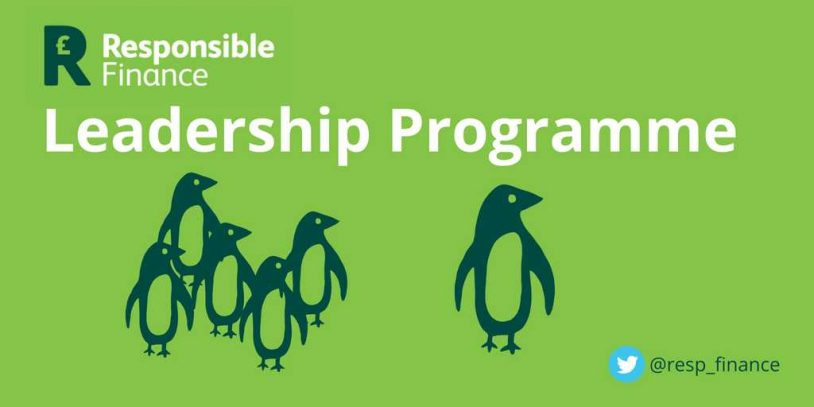
The world is awash with leadership books, courses and advice. In 2015 around 1,200 books were published with the word ‘leadership’ in the title. Type ‘leadership’ into a search on Amazon and you will have over 50,000 titles to peruse. Hundreds of MBA courses are available every year. You can find out how ‘Dogs teach us to be better leaders’, ‘How penguin leadership will change your team culture’ and ‘Unicorn Leadership: how integrated, next-level leaders are changing the world’. And politicians, top military brass, psychologists and business leaders all have platforms to share their secrets of leadership success.
So with all of these options on the market, why is the responsible finance sector in need of a leadership programme?
Over the last decade we have seen an acceleration within mainstream and retail finance of roles becoming highly specialised. But responsible finance remains a sector that puts people first, is agile and innovative.
Yet there is limited availability of training and development programmes for those working in responsible and social finance, a growing sector that is critical to supporting local economic growth and financial resilience across the UK.
In 2017, the responsible finance industry lent £67 million to over 5,000 small businesses, creating over 4,000 jobs. Businesses funded included local nurseries, manufacturers, cafes and food producers. £22 million was lent in over 55,000 loans and customers were encouraged to deposit over £3 million into savings accounts and helped to improve their credit scores and financial capability. £142 million was lent to 363 social enterprises, including a charity training medical detection dogs and a community build scheme with integrated training and employment skills on construction sites.
Credit unions are financial cooperatives that provide savings accounts and loans to consumers. At the end of 2017 there were 450 credit unions in the UK with nearly 1.8 million members. In 2017 credit unions lent over £161 million to their members, and had total deposits of £2.6 billion at the end of the year.
Social investors invest with a social purpose alongside a financial return. In 2016 £630 million was invested to over 1,100 beneficiaries. The majority of this was lending by social investment intermediaries.
Despite this significant impact, the social and responsible finance sector is ambitious to do far more and knows that the need from customers is there. Building the next generation of leaders and developing the skills they need will ensure the long term sustainability of the sector. It is important that responsible finance leaders of the future have the confidence and abilities to tackle some of the sector’s prominent opportunities and challenges.
With small teams and limited resources, senior management need to have overview of and provide leadership on issues ranging from risk management to lending policies, IT platforms to marketing, securing investment to demonstrating impact.
That’s why Responsible Finance has launched its first leadership programme for the responsible finance sector. Funded by the Connect Fund and delivered in partnership with Clore Social Leadership, the programme will also be available to the wider social finance sector, such as credit unions and Social Investment Finance Intermediaries (SIFIs).
The target audience is aspiring leaders in the sector, middle managers and above. The purpose is to create the next generation of responsible finance leaders, addressing succession planning, staff development and retention challenges that the sector faces.
The Responsible Finance Leadership Programme will support aspiring leaders to develop their skills, knowledge and behaviours to become stronger ambassadors for their organisation and the sector as a whole. It will help them to become better strategic thinkers, confident to operate openly and transparently while empowering others and to effectively collaborate with a wide range of stakeholders.
You can find out more here.
Jennifer Tankard
Chief Executive
Responsible Finance
